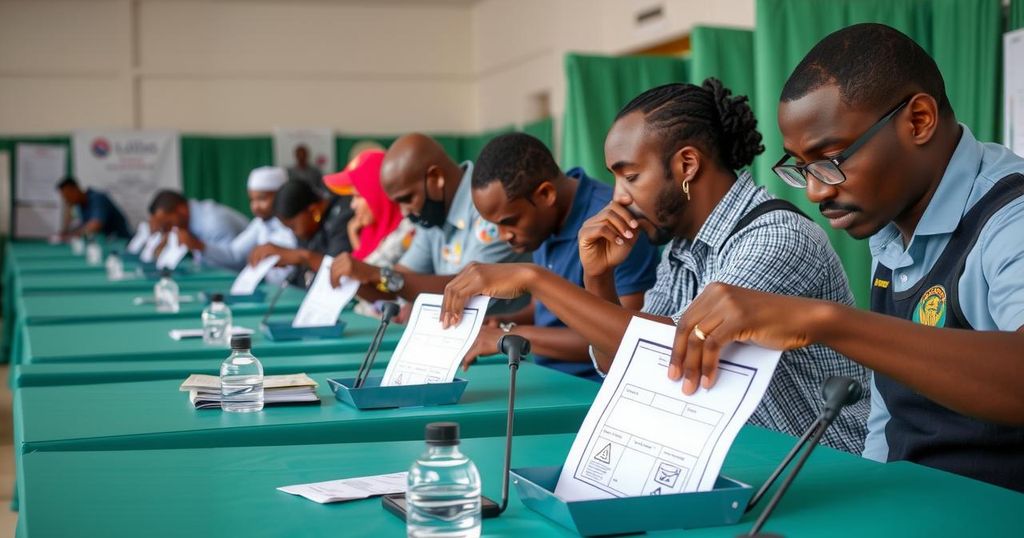World news
ABDALLAH SAMBI, AFRICA, AUSTRALIAN ASSOCIATED PRESS, AZALI ASSOUMANI, COMOROS, ELECTION FRAUD, GOVERNANCE, GOVERNMENT, HAMIDOU KARIHILA, HOPE OF THE COMOROS, INDIAN OCEAN, INDIAN OCEAN ARCHIPELAGO, JUWA, NO, NOUR EL - FATH, OPPOSITION, POLITICS, PRESIDENTIAL ELECTION, REUTERS, SUPREME COURT
Sofia Rodriguez
0 Comments
Comoros Voters Prepare for Crucial Parliamentary Elections Amid Controversy
Voters in Comoros are set to elect the parliament amid tensions following President Azali Assoumani’s controversial re-election. Approximately 338,000 voters are registered, with near 100 candidates competing, as allegations of authoritarian governance and opposition boycotts pervade the electoral atmosphere. Results are expected by Friday.
On Sunday, voters in Comoros will participate in elections for the 33-seat parliament of the Indian Ocean archipelago, a year following the contentious re-election of President Azali Assoumani. The opposition contends that the previous election was marred by significant irregularities, a claim that the ruling party officials have firmly denied. Approximately 338,000 individuals are registered to vote, with polling stations opening early to accommodate them.
This parliamentary election marks the first since January 2020, with nearly 100 candidates approved by the nation’s Supreme Court vying for positions. Assoumani’s administration faces accusations of authoritarianism, as many speculate he is grooming his eldest son, Nour El-Fath, for succession when his current term concludes in 2029.
Assoumani, who has been in power since a coup in 1999, has successfully navigated through three elections. Recently, he granted his son significant authority, tasking him with overseeing all government operations. Some opposition factions, notably Juwa, led by former President Ahmed Abdallah Sambi—currently serving a life sentence—have advocated for a boycott of the elections, although other groups have chosen to contest.
Opposition candidate Hamidou Karihila emphasized the importance of participating in the election: “The Azali regime is weakened … by participating in these elections we are contributing to further exposing the flaws in its system and accelerating its inevitable fall.” Election results are anticipated to be announced by Friday.
The political landscape in Comoros has been fraught with tension, particularly following the re-election of President Azali Assoumani, which opponents claim was marred by irregularities. The recent elections are significant as they follow allegations of authoritarian governance under Assoumani, who has been accused of consolidating power and preparing his son for a leadership role. The context of the elections is influenced by the uncertainty of democratic processes in the region and longstanding opposition sentiments.
The upcoming election for Comoros’ parliament reflects a critical juncture in the nation’s political climate, with accusations of authoritarianism surrounding President Assoumani’s regime. While opposition voices advocate for participation as a means to expose governmental flaws, the call for boycotting highlights the divisions within opposition factions. As the voting unfolds, the sentiments of the electorate and the subsequent results may either reinforce or challenge the current political order in Comoros.
Original Source: www.lismorecitynews.com.au




Post Comment